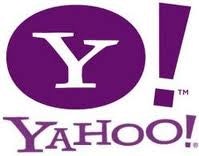
Investment holdings are driving net income
Yahoo! Inc. (NASDAQ:YHOO) core businesses of display properties and search are still in decline. In 2Q13, Yahoo! Inc. (NASDAQ:YHOO)’s display revenues declined 12% Y/Y to $472 million, the number of ads sold declined 2% year-over-year and the price per ad declined by 12%. Yahoo’s revenues from the search engine was $418 million in 2Q13, which is a 9% Y/Y decrease. However, the company is selling more ads on search as the paid clicks increased a stellar 21% year-over-year, but the price per click came trickled down by 8%.
Yahoo! Inc. (NASDAQ:YHOO)’s management in the most recent earnings call did state that the company is trying to build a great customer experience on various Yahoo properties. A reason for Yahoo’s decline in display advertising is very likely to be the company’s efforts to reduce banner blindness.
The company’s bottom line is increasingly being driven from the equity earnings from Yahoo Japan and Alibaba. Back in 2010, the combined income from these two holdings stood at 32% of Yahoo! Inc. (NASDAQ:YHOO)’s net income and in 2Q13 this surged to 67% of total Yahoo! Inc. (NASDAQ:YHOO)’s net income. And going forward, the company’s net income will likely be more dependent from these two Asian assets.
Alibaba is bigger than Amazon, eBay
Alibaba is growing at a rapid-fire pace and has a very dominant position in China’s e-Commerce industry. The company easily compares to Amazon.com, Inc. (NASDAQ:AMZN) and eBay Inc (NASDAQ:EBAY). The company’s business model is very much in line with eBay Inc (NASDAQ:EBAY)’s business of connecting buyers and sellers in the online marketplace, and similar to Amazon.com, Inc. (NASDAQ:AMZN)’s third party (3P) marketplaces business. But Alibaba’s strong stable of Internet businesses such as e-Commerce and cloud computing make it more in line with Amazon.com, Inc. (NASDAQ:AMZN)’s business.
However, the transaction volume on Alibaba’s platform including Taobao and Tmall.com was estimated to be $180 billion in 2012, which is much higher than Amazon.com, Inc. (NASDAQ:AMZN)’s estimated gross merchandise volume of $104 billion (which estimates GMV of roughly $52.5 to its 3P business) and eBay Inc (NASDAQ:EBAY)’s total commerce volume of roughly $145 billion in 2012.
Alibaba doesn’t sell the goods itself but is the facilitator of online trade like eBay and is growing at a rapid-fire rate of more than 71%. And according to Yahoo’s disclosures, Alibaba’s net income margin in 1Q13 stood at 48%, which is greater than the net income of margins of Amazon.com, Inc. (NASDAQ:AMZN) and eBay combined.
And Alibaba operates a number of other lucrative properties in China including Alipay and an 18% stake in SINA’s Weibo unit which is similar to Twitter. And the payment transactions on Tmall.com and Taobao are processed on Alipay. And Alipay has become the largest online payments player in China with more than 700 million registered users, which is exponentially higher than PayPal’s customer base of 132 million.
Amazon and eBay trying to win Chinese consumers
Amazon is investing heavily in China, and has been in that investment mode for a few years now. Amazon’s management disclosed in the 2Q13 earnings call that the company will be making more investments in the world’s populous country–to add more selection across more product categories. Amazon.com, Inc. (NASDAQ:AMZN) clearly views China has a long-term growth region, and is competing with Alibaba’s Internet properties to win over Chinese consumers. Amazon is also trying to build a broader presence for the Kindle product line in the Chinese market through numerous offline retailers as well.
Just like Amazon, eBay has been trying to ramp up its presence in China. The company had a hard time mastering the over-sized Chinese market with its own Marketplace and through acquisitions. However, eBay has been less than successful in figuring out China just like numerous other leading Internet companies including Amazon and Google but the payments business with PayPal had better luck in China.
EBay’s management did disclose recently that the company has been a lot more selective in choosing the sellers in its marketplace, and implemented more stricter standards to enable buying and selling. And going forward, China will be a crucial market for both Amazon.com, Inc. (NASDAQ:AMZN) and eBay for future growth as addressable market in developed markets shrink in size. And since eBay’s marketplaces and payments divisions conduct a large amount of cross-border transactions, the need to win over Chinese consumers is very important for eBay’s future growth prospects. However, Alibaba’s leading Internet platform–Taobao remains very dominant in China with a lot more consumer acceptance and usage as well.
Alibaba’s earnings up more than 200%
A number of sell-side analysts upgraded Yahoo! Inc. (NASDAQ:YHOO) stock citing the increased public market value of Alibaba, which can be worth up to $120 billion. In addition, the proceeds Yahoo received from the partial sale of its Alibaba stake is being used to buyback even more stock. Yahoo recently announced that it will be repurchasing 40 million shares from activist investor, Dan Loeb at a price of $29.11 and using up $1.2 billion in cash for the transaction. And after the share repurchase Dan Loeb will step down from Yahoo’s board but will continue to own more than 20 million shares of Yahoo after the buyback.
Alibaba Group is worth a lot more than the recorded values on Yahoo’s balance sheet. As a result, Yahoo’s intrinsic value is higher than its current market cap. In 1Q13, Alibaba’s top line revenues grew 71% Y/Y to $1.38 billion, and net income increased a whopping 203% on a year-over-year basis to $669 million. So Alibaba’s valuation in an IPO is not overly optimistic and comparable to recent big name tech IPOs like Facebook’s listing. Alibaba’s IPO or the continued increase in the expected value of Alibaba remains a major catalyst for Yahoo shares going forward. At the time of an Alibaba IPO, Yahoo might possibly divest sizable large portion of its 24% stake, but at the discretion of Alibaba’s management.
The article Yahoo’s Golden Egg Is Alibaba originally appeared on Fool.com and is written by Ishfaque Faruk.
Ishfaque Faruk has no position in any stocks mentioned. The Motley Fool recommends Amazon.com, eBay, and Yahoo. The Motley Fool owns shares of Amazon.com and eBay. Ishfaque is a member of The Motley Fool Blog Network — entries represent the personal opinion of the blogger and are not formally edited.
Copyright © 1995 – 2013 The Motley Fool, LLC. All rights reserved. The Motley Fool has a disclosure policy.





